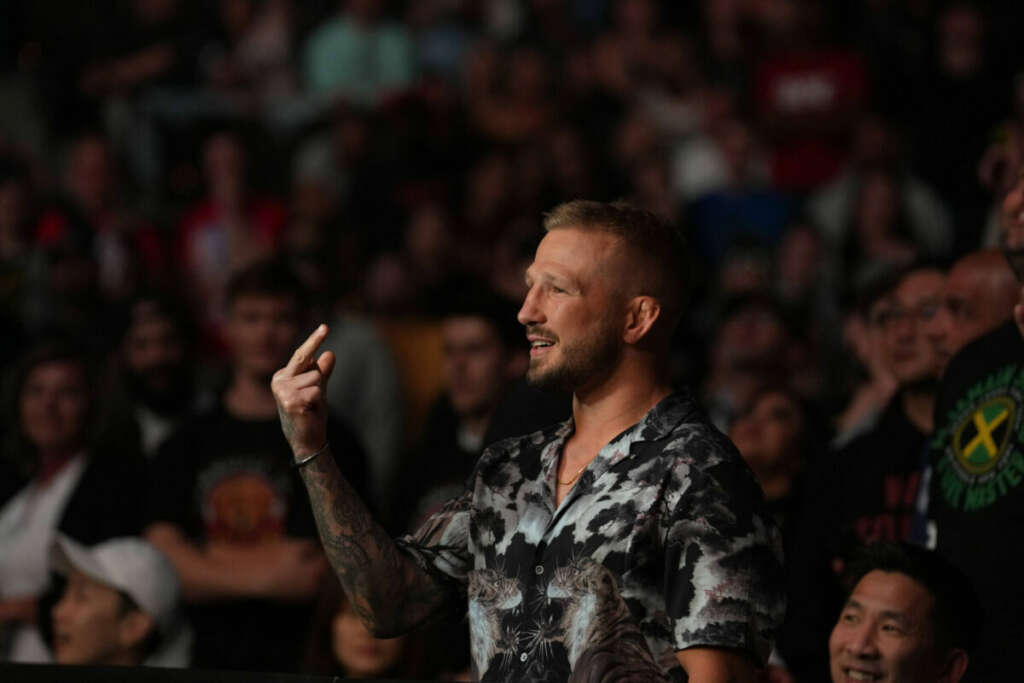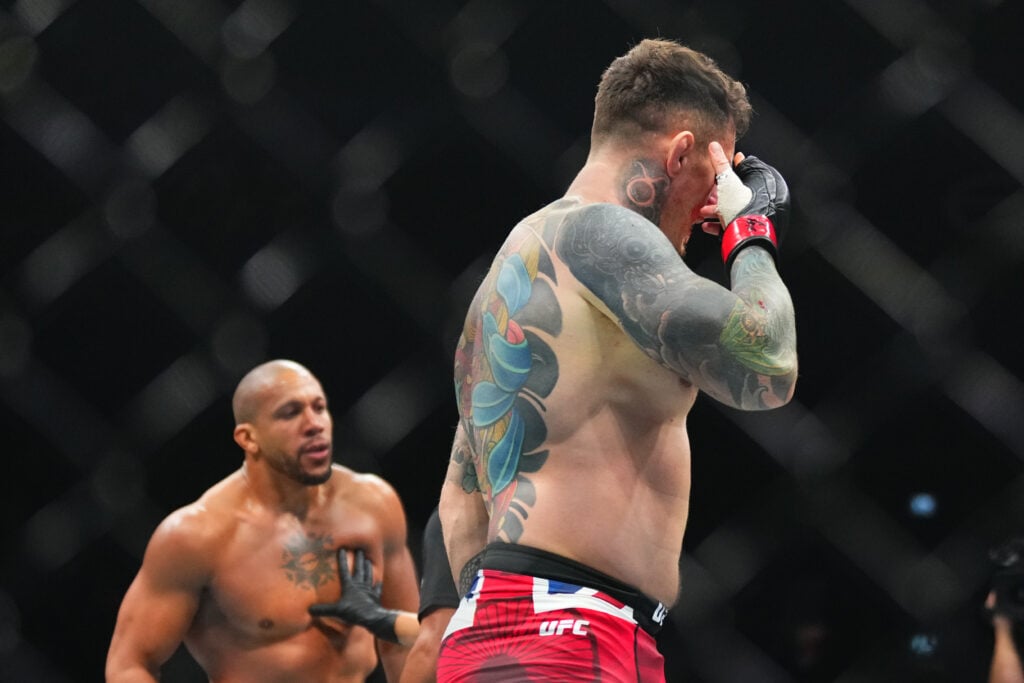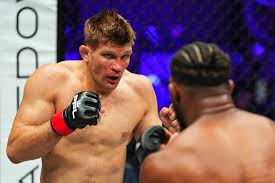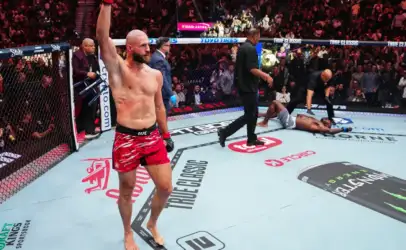
After a controversial ending to UFC 321, TJ Dillashaw has joined the growing list of former fighters questioning heavyweight champion Tom Aspinall’s decision to stop fighting after an eye poke from Ciryl Gane.
The fight ended abruptly in the first round when Gane accidentally poked Aspinall in both eyes, forcing the referee to call a no-contest. The outcome left fans frustrated, with many split between sympathy for Aspinall and suspicion that he might have taken the easy way out.
During an episode of the JAXXON Podcast, TJ Dillashaw didn’t mince words about how the situation looked.
“First and foremost, it was a foul, and Ciryl Gane is the one to blame for it,” Dillashaw said. “But from the optics — his eye was closed when he got poked. He said he couldn’t see, but he wasn’t even trying to open his eye. Then you see pictures later, and his eye looks fine. I’ve seen a whole finger go in someone’s eye, and they kept fighting.”
The former two-time UFC bantamweight champion went further, implying that Aspinall might have found an easy way to preserve his title.
“It’s all speculation, but I feel like he might have taken the easier way out,” Dillashaw added. “It’s a no-contest; he still gets paid, stays champion, and gets a chance to do it again.”
Despite the controversy, UFC CEO Dana White has already confirmed that a rematch between Aspinall and Gane is in the works. Dillashaw believes that could work to Aspinall’s advantage, giving him more time to prepare for an opponent who had started to find his rhythm before the foul.
“Tom Aspinall is one of those explosive fighters who rushes in with power shots,” Dillashaw explained. “But Gane was more calculated, choosing his angles, circling smartly, keeping the fight in his range. That’s what Aspinall underestimated. He’s used to finishing fights in the first round, and this time it wasn’t going that way.”

Meanwhile, Aspinall’s father recently revealed that his son still can’t see out of one eye and will undergo further medical testing before determining a return timeline. However, Dillashaw’s scepticism reflects a broader conversation among fighters and fans about toughness, injuries, and perception in combat sports.
For TJ Dillashaw, a fighter who’s been through highs, lows, and controversy himself including a suspension for EPO use in 2019 and his retirement in 2022, the optics of UFC 321 were hard to ignore. “I don’t want anyone fighting impaired,” he said, “but at the same time, it just didn’t look right.”
The debate over Aspinall’s decision might continue until the rematch happens, but one thing is certain: UFC 321’s no-contest has reignited the age-old question of what defines grit inside the Octagon.




